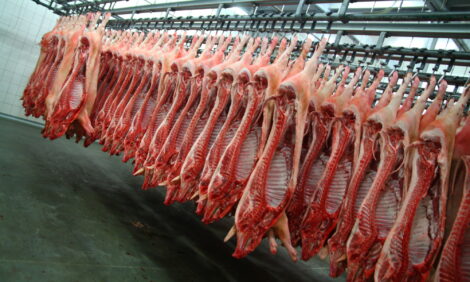



Important Roles for L-Glutamine Revealed in Pig Nutrition
New research at Texas A&M University indicates that L-glutamine is an essential nutrient for pigs and that growth, development and production performance in pregnant and lactating gilts and sows and in weaned piglets can be improved by supplementing the diet with one per cent L-glutamine.G. Wu and colleagues at the Departments of Animal Science and of Veterinary Integrative Biosciences at Texas A&M University have published a paper on their work on the role of L-glutamine in pig nutrition in the new issue of Journal of Animal Science.
L-glutamine (Gln) has traditionally not been considered as a nutrient needed in diets for livestock species or even mentioned in classic animal nutrition textbooks, the researchers explain. This is due to previous technical difficulties in Gln analysis and the unsubstantiated assumption that animals can synthesise sufficient amounts of Gln to meet their needs. Consequently, the current version of NRC (1998) does not recommend dietary Gln requirements for swine.
This lack of knowledge about Gln nutrition has contributed to suboptimal efficiency of global pig production, they say. Because of recent advances in research, Gln is now known to be an abundant amino acid in physiological fluids and proteins and a key regulator of gene expression. Additionally, Gln can regulate cell signaling via the mammalian target of rapamycin pathway, AMP-activated protein kinase, extracellular signal-related kinase, Jun kinase, mitogen-activated protein kinase and nitric oxide. Exquisite integration of Gln-dependent regulatory networks has profound effects on cell proliferation, differentiation, migration, metabolism, homeostasis, survival and function.
As a result of translating basic research into practice, Wu and co-authors conclude that dietary supplementation with one per cent Gln maintains gut health and prevents intestinal dysfunction in low-birthweight or early-weaned piglets, while increasing their growth performance and survival.
Also, supplementing one per cent Gln to a corn-soybean meal-based diet between days 90 and 114 of gestation ameliorates foetal growth retardation in gilts and reduces pre-weaning mortality of piglets.
Furthermore, dietary supplementation with one per cent Gln enhances milk production by lactating sows.
Thus, adequate amounts of dietary Gln, a major nutrient, are necessary to support maximum growth, development and production performance of swine, conclude the researchers from Texas A&M University.
Reference
Wu G., Bazer F.W., Johnson G.A., Knabe D.A., Burghardt R.C., Spencer T.E., Li X.L. and Wang J.J. 2010. Important roles for L-glutamine in swine nutrition and production. J Anim Sci. 2010 Dec 17. Epub ahead of print.
Further Reading
| - | You can view the full report (fee payable) by clicking here. |
December 2010








